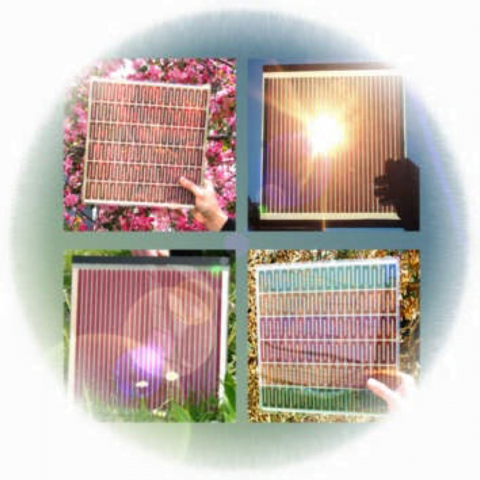UPSC Articles
Dye-Sensitised Solar Cells using Kamala Fruit
Part of: GS Prelims and GS- III – Sci and tech
In news Research team at Central University of Jharkhand has used the dye extract of the kamala fruit to create a low-cost and non-toxic sensitiser for dye-sensitised solar cells.
- But there is still a lot to be done to finalise the efficacy
What is Dye-sensitized solar cell?
- Dye-sensitized solar cell (DSSC) is a low-cost solar cell belonging to the group of thin film solar cells (converting solar energy into electricity)
- It is based on a semiconductor formed between a photo-sensitized anode and an electrolyte, a photoelectrochemical system.
- The modern version of a dye solar cell, also known as the Grätzel cell
- Attractive features: It is simple to make using conventional roll-printing techniques, is semi-flexible and semi-transparent which offers a variety of uses not applicable to glass-based systems, and most of the materials used are low-cost.
Key Takeaways
- Popularly known as senduri, rohini or rori among Jharkhand tribal communities, the red kamala tree is a semi-evergreen woody spurge plant that bears fruit only in spring.
- This is the first time this dye has been used for solar cell application.
- Natural dye was extracted from the pericarp of the kamala fruit.
- The extracted dye was used to make an inexpensive, non-toxic sensitiser for DSSCs or Grätzel cells, which directly convert solar energy into electricity.
- Significance: Natural dye can be easily extracted from an inedible source, like the kamala fruit in its untreated form, using a very low-cost technique and therefore it can provide the best alternative to that of toxic and expensive synthetic dye used for solar cells.
- For the past few years, natural extracts from produce such as jamun, pomegranate, spinach, beetroot, hibiscus, green algae and black carrot have been utilised as solar cell dye and found favour for both scalable and sustainable benefits.

News source: TH











